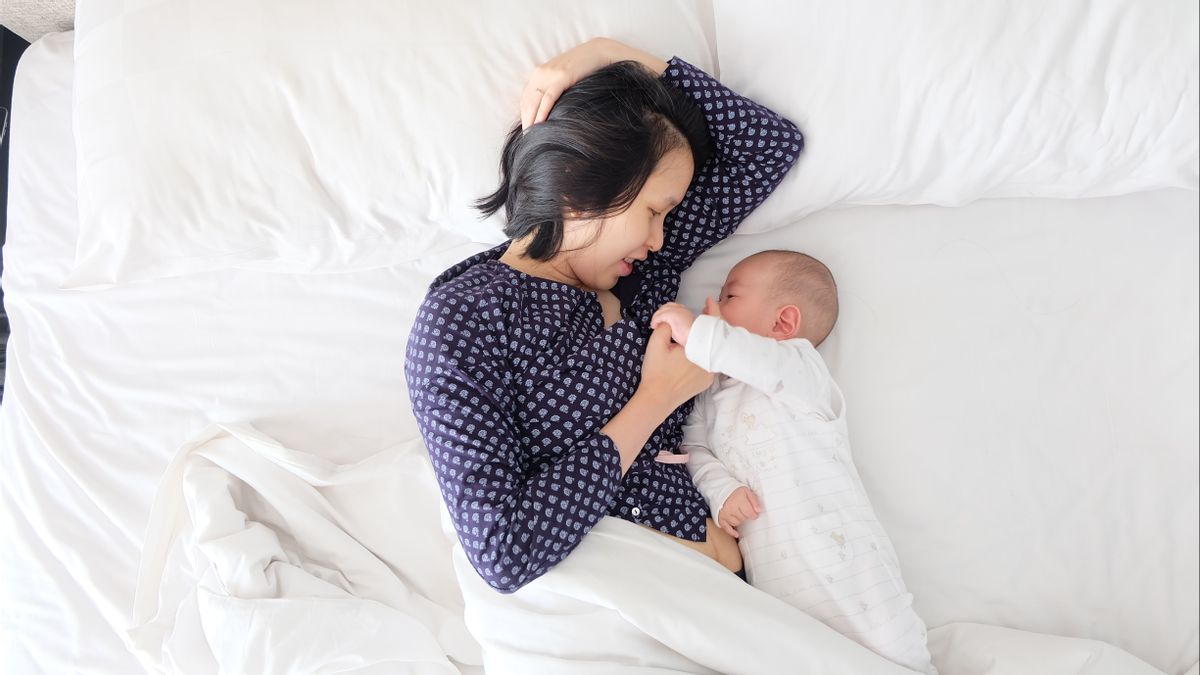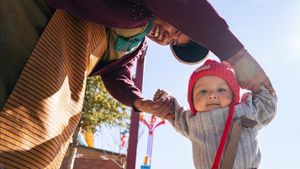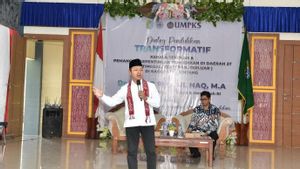JAKARTA - A group of women consisting of more than a dozen women, wearing a matching pink lab suit, leaning on a row of benches in the classroom, with a serious face while gently massaging and stretching the baby's body parts of the plastic doll.
They are students who come to the rutin training center in Shanghai from all over China, to learn to be "yue sao" or caregivers, who care for newborn mothers and babies, especially in the first month of birth.
Confinement care is nothing new in China, where the practice of confinement for one month after birth, traditionally includes strict rules around bathing, washing hair and brushing teeth for mothers, has long been a norm.
"What's different at this time is the professionalism and expectations of those who carry out treatment," said Jiang Lei, a teacher at the center.
Slightly opposite to intuition, the decline in birth rates in China, official data released in January showed that the country's population fell last year for the first time in six decades.
Even as people plan to have fewer children, parents who work in Chinese cities who may have only one child are more willing not to spend the money to get the best treatment from day one, Jiang said.
Although China's rapidly growing learning guidance industry was hit hard by the crackdown in 2021, aiming to reduce the financial burden of parents raising children and therefore encourage them to have more than one child. Parents in big cities still spend a lot of money on extracurricular activities aimed at giving children a good start.
In Shanghai, for example, private private tutoring costs one on one over 200 yuan (USD 28.97) per hour, music lessons regularly cost more than 400 yuan per hour, and sports and science camps often cost between 6,000 yuan and 8,000 yuan per week during the holiday period.
"We need professionals to do professional things for professionals," Jiang added, explaining that the center teaches "scientific knowledge of feeding, cultivation of sleep and other knowledge such as early childhood education".
Jiang mengatakan, para wanita di Shanghai yang hanya meneruhkan setengah dari rata-rata pemawat bayi per bulannya akan tetap membayar layanan profesional, karena layanan ini dianggap sangat penting bagi para ibu modern.
According to a job vacancy advertisement seen by Reuters, caregivers in major cities can earn 15,000 yuan per month or even more, relatively high wages in countries with an average wage of less than 9,000 yuan, according to available National Bureau of Statistics data.
The wage encourages women with higher education certificates to enter this industry.
Dong Lili, a student at this training center, learned machine engineering before having her own baby six years ago. The experience of caring for her own child makes the idea of having a career in parenting interesting, he said.
"When parents choose a nanny, they will choose a more professional caregiver, and the requirements for academic qualifications are very high," added the 35-year-old woman.
However, the students and teachers at the child care center agreed, although the need for modern, professional and trained child care is clearly visible, the most important skill for a caregiver remains the same as before.
"You have to be patient and treat a baby like your own child," said a student named Sun Hui (46).
"Every child is like your own heart and soul," he said.
The English, Chinese, Japanese, Arabic, and French versions are automatically generated by the AI. So there may still be inaccuracies in translating, please always see Indonesian as our main language. (system supported by DigitalSiber.id)













